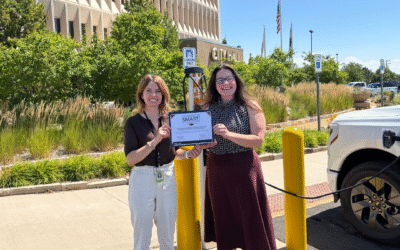The Advanced Clean Trucks (ACT) rule is a policy initiative aimed at accelerating the deployment of zero-emission medium and heavy-duty vehicles. The ACT mandates that manufacturers of medium and heavy-duty trucks sell increasing percentages of zero-emission vehicles each year, with the goal of achieving 100% zero-emission sales by 2035, starting from model year 2027. These trucks use a variety of technologies, including battery electric, hydrogen, and plug-in hybrid.
The ACT, along with the Low NOx Trucks rule, is expected to significantly reduce greenhouse gas emissions from the transportation sector while promoting healthier communities through cleaner air. The ACT rule will also drive innovation and investment in clean truck technologies, leading to the development of new, more efficient, and more affordable zero-emission vehicles. This will benefit not only fleet operators but also consumers who will have access to cleaner and more sustainable transportation options.
What does this mean for fleet operators?
The ACT ruling applies to manufacturer sales figures, not consumers. Therefore, no fleet owner is required to purchase a zero-emission fleet vehicle. However, the ACT ruling will create a thriving market with diverse offerings of clean trucks and buses. When replacing vehicles, there will be a greater selection of affordable options to choose from. Fleet managers interested in zero-emission alternatives will benefit from the thriving market that will result from this policy.
Fleet operators can save on fuel and maintenance costs by transitioning to electric and fuel cell trucks over the lifetime of these vehicles. Though the initial purchase price of a zero-emission vehicle may be higher, the long-term savings from lower fuel and maintenance costs can offset this cost difference. Additionally, by operating clean trucks with zero tailpipe emissions in areas with excessive emission fines, fleets can save on emission-related expenses.
What should fleet operators do?
To take advantage of the ACT ruling, fleet managers should assess their fleet’s current emissions profile and evaluate how zero-emission vehicles may impact their operations. This assessment could include data on fuel usage, emissions, vehicle types/ages, and fueling infrastructure requirements. Further, developing a transition plan to phase in new vehicles and infrastructure can help fleet managers ensure compliance while minimizing operation disruptions and reducing costs. Grant programs are available to support this transition, and fleet operators should explore incentives and other available funding sources to offset deployment costs.
Conclusion
By promoting the adoption of zero-emission vehicles, the ACT rule will help to reduce greenhouse gas emissions, increase energy security, and drive innovation and investment in clean truck technologies. Moreover, the ACT rule will benefit the trucking industry as a whole by improving air quality, reducing noise pollution, and supporting a sustainable and low-carbon transportation system.
To stay up-to-date on the latest developments regarding fleet funding for infrastructure buildout, fleet managers should visit the Drive Clean Colorado website. If you have any questions about the ACT ruling or its implications for your fleet, please feel free to reach out to a DCC representative who will be happy to assist you.






